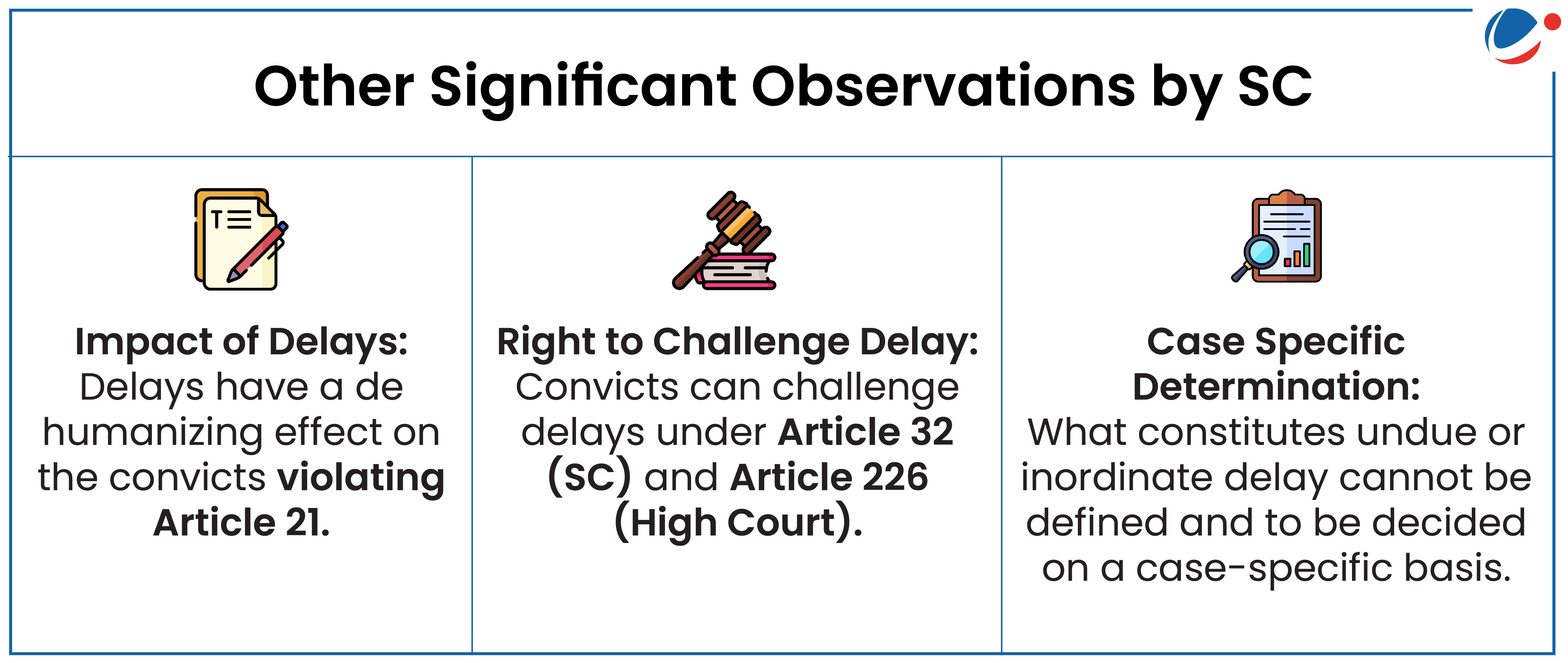Pronounced in the State of Maharashtra Vs. Pradeep Yashwant Kokade case, guidelines seek to streamline the mercy petition and death penalty execution processes avoiding undue delays, safeguarding convicts’ legal rights, etc.
Major Guidelines issued by the SC
- Dedicated Cells for Mercy Petitions: To be established by States and UTs to handle mercy petitions and process them promptly within the prescribed timeframe.
- Attachment of Judicial Officer: An official from the Law and Judiciary Department to be attached to the dedicated cell.
- Information Sharing and Documentation: Prison authorities must forward mercy petitions to the dedicated cell and call for information from police stations and investigation agencies, etc.
- Coordination with Governor and President's Secretariats: Mercy petitions must be forwarded to these secretariats for further action.
- Electronic Communication: Communications should be conducted via email to ensure efficiency, barring cases that require confidentiality.
- Guidelines and Reporting: State Governments to issue executive orders detailing procedures for handling mercy petitions.
- Implementation: States/UTs to report compliance with the SC directions within three months.
- Guidelines to Sessions Courts: Maintain record of such cases, issue notices to public prosecutors or investigative agencies for pending appeals.
- Execution warrants: To be issued by the State immediately after the death penalty becomes enforceable.

About Mercy Petition
|







